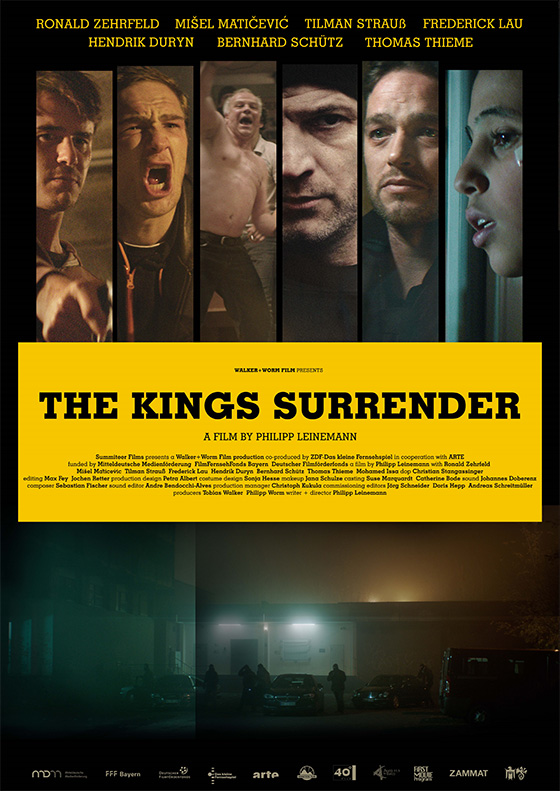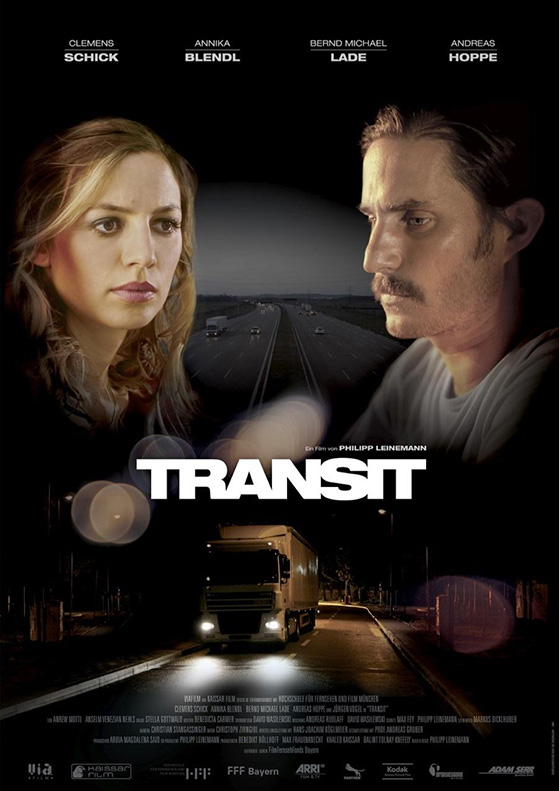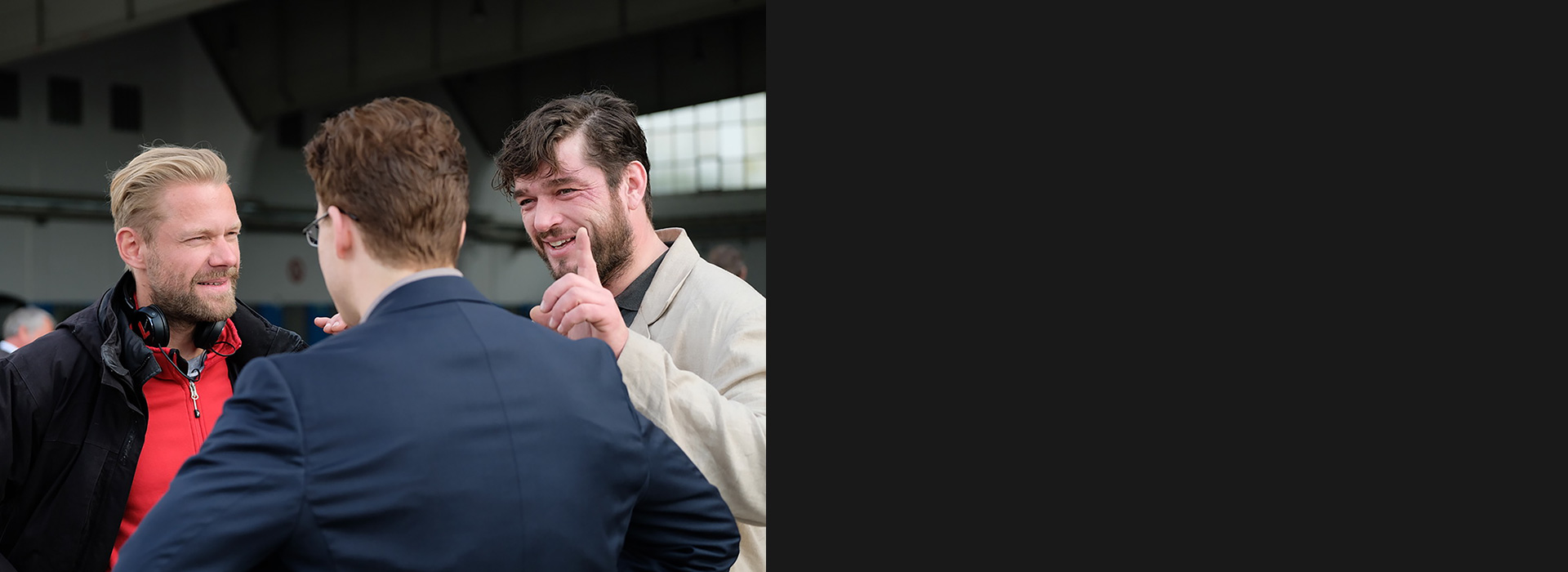A PORTRAIT OF DIRECTOR PHILIPP LEINEMANN
Philipp Leinemann with actors Alexander Fehling & Ronald Zehrfeld on the set of DAS DRITTE STERBEN (© Bernd Schuller)“THE KINGS SURRENDER opened a lot of doors for me,” Philipp Leinemann states, still slightly incredulous about the impact his second movie, released in 2014, had. “Many offers I received explicitly referred to that movie. While I felt like a filmmaker before that, THE KINGS SURRENDER certainly clinched the deal for me.”
Leinemann has a point: He has been in high demand since his film premiered at the Filmfest Munich in late June 2014. In the wake of THE KINGS SURRENDER the 38-year-old director made a widely acclaimed POLIZEIRUF 110, directed two TV movies, DIE INFORMANTIN and DER LETZTE GENOSSE, and made waves with the six-part series TEMPEL with Ken Duken in the lead. All the while, he found time to work on the screenplay for his new feature film, DAS DRITTE STERBEN, which he just finished shooting with his THE KINGS SURRENDER star Ronald Zehrfeld and Alexander Fehling in the leads.


Leinemann’s films tell complex stories about complex characters dealing with complex problems. When you tell him he’s making the kind of movies for grown-ups that seem to have completely died out in Germany as of late, he can’t help but smile. You can tell he’s taking it as a compliment (which it is), because that’s just how he sees it himself. He’s the rare German director who thrives on being a genre filmmaker, even though there’s some unspoken rule that thrillers have a hard time at the German box office because there are already so many of those on TV for free. Call it the TATORT conundrum.
But of course crime stories lend themselves to the kind of human studies about difficult moral and ethical choices which Leinemann naturally feels drawn to. That’s what drives him and excites him as a storyteller. “I want to find interesting ways inside the heads of my characters, but at the same time I want to place them in situations that are tense and suspenseful. I want to entertain my audience as much as I want to challenge it, and I feel like genre movies give me the freedom to accomplish these goals,” he explains.
The first thing Leinemann will confess to when you talk to him is that he doesn’t think of himself as a natural born filmmaker. He has no romantic notion about his trade. Instead, he likes the nuts and bolts of making movies and enjoys the intellectual and technical challenge of bringing a story to the screen. Which probably makes sense, given his upbringing. “I come from a dynasty of engineers which is why at first I signed up to study engineering,” Leinemann says. “But from an early age I also had started to draw and write and make music. I was interested in telling stories and realized at some point that filmmaking was the ideal medium to bring my interests together. I remember borrowing my dad’s camera and reenacting APOCALYPSE NOW. Laying my parents’ garden to waste.” Engineering was out, directing was in.
Leinemann enrolled in film school in Munich in 2004 and six years later presented his medium-length graduate film, TRANSIT, at the Filmfest Munich where it was awarded the Production Prize. Needless to say, the drama about a desperate truck driver who has one last chance to redeem himself already had the edge of a tense thriller. Something that finally came to the fore in THE KINGS SURRENDER, a story with a strong and tight narrative about the fallout of a police operation gone wrong. And DAS DRITTE STERBEN will follow in that tradition, while at the same time expanding the focus. There are bigger fish to fry now. Again produced by Walker & Worm who have been on a roll lately, it’s a thriller about an intelligence expert working for the Federal Intelligence Service who realizes that it’s nigh to impossible in his trade to distinguish between good and bad anymore, which puts him into a difficult position. “I have spent many hours reading up on the topic which I find endlessly fascinating. I researched everything and tried to be as thorough as possible and then took my time turning it into a suspenseful and hopefully intelligent narrative,” Leinemann states.
Judging from the way he talks about the project he’s not only very fond of it, but also happy how the shooting process turned out. “I don’t mind doing assignments, but it’s really something else to work on your own project which you can shape any way you please,” the filmmaker explains. He’s just started editing the material. “I’m quite meticulous about the process. As much as I obsess over blocking shots with my DP and working with my actors, it’s in the editing room that everything comes together – or not.“
We’ll have to wait until early next year to see the result. But given Leinemann’s relentless drive, it’s safe to say it’s gonna be worth the wait.
Thomas Schultze

